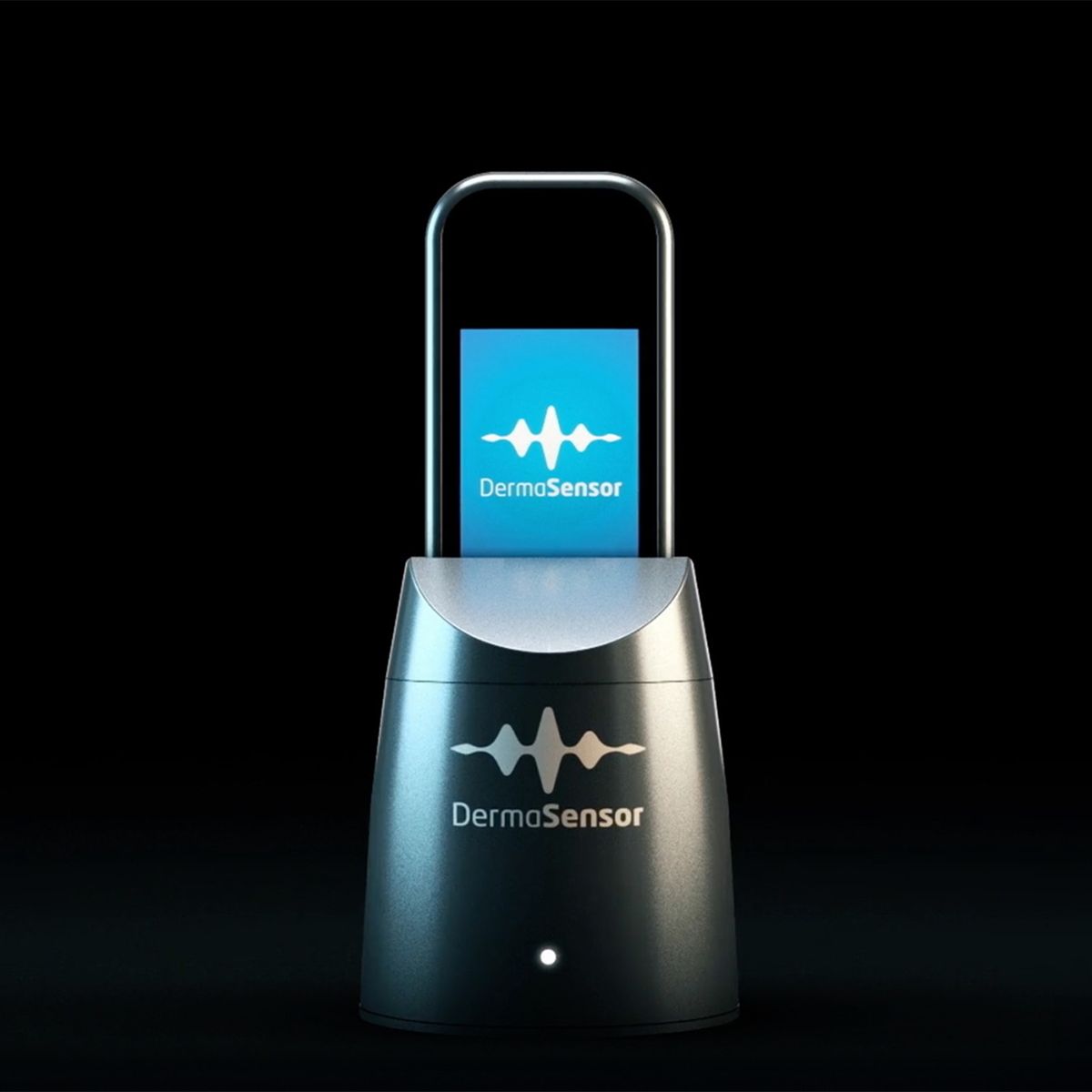

Bringing AI-powered skin cancer detection to primary care
A handheld spectroscopy device using AI and elastic scattering spectroscopy achieved ~96% sensitivity across major skin cancers. Trials spanning urban and rural centres halved missed cancers and led to FDA De Novo and CE Mark approvals.

Skin cancer is the 17th most common cancer in the world with the highest incidence rate in the US, followed by Germany, the UK, and Australia, Early-detection can go a long-way when it comes to identification, treatment, and outcomes. However, primary care physicians did not always have access to the tools they needed to do this. Enter: Dermasensor.
Dermasensor is a handheld spectroscopy device was developed to provide rapid, non-invasive guidance at the point of care. The device uses elastic scattering spectroscopy (ESS), a technique that shines light onto the skin and measures how it scatters. These patterns can reveal structural changes in tissue that may indicate cancer. Paired with AI and machine learning algorithms, the system analyzes skin lesions in seconds and provides a simple recommendation: “Monitor” or “Investigate Further.” This is particularly valuable for general practitioners who may not have specialist training in dermatology.
Mobius Medical supported the development team through multiple pivotal clinical trials, following the device’s FDA Breakthrough Device Designation in 2021. Trials were conducted across primary care settings, including rural centres in Australia where skin cancer rates are among the highest. These trials required careful planning to ensure consistent performance across diverse populations and clinical environments. Mobius provided end-to-end support, from trial design to regulatory strategy and site coordination.
The device demonstrated a high sensitivity of ~96% for detecting melanoma, basal cell carcinoma, and squamous cell carcinoma. In real-world use, missed skin cancers were reduced by half. Importantly, performance remained consistent across a range of skin tones, supporting equitable access to care.
Following these results, the device received FDA De Novo clearance in January 2024 (Class II with special controls), is CE-Marked, and is now available in the U.S., Europe, Australia, and New Zealand. This marks a significant step forward in expanding AI-enabled diagnostics in primary care.
At Mobius, we are experts at taking innovations from blueprint to breakthrough, together. If you have an innovation that can advance care – reach out.
Key outcomes
- Supported multiple pivotal trials following FDA Breakthrough Device Designation (2021)
- Conducted studies across primary care and rural Australian centres
- Achieved ~96% sensitivity for melanoma, basal cell carcinoma, and squamous cell carcinoma
- Reduced missed skin cancers by 50% in real-world use
- Performance consistent across diverse skin tones
- Regulatory approvals: FDA De Novo (2024, Class II) and CE Mark
- Now available in the U.S., Europe, Australia, and New Zealand
